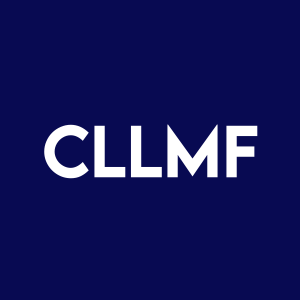Collective Metals Discusses Results of 2023 Program with respect to the Trojan-Condor Corridor on its Princeton Project
Highlights
- Rock samples from the Trojan MINFILE showing and the Eagle target ~650 m to the southeast yielded highly anomalous copper values of 518 and 5,350 ppm (
0.53% ), respectively. - These results confirm previous elevated to highly anomalous copper results from float samples and, together with available geophysics, confirm the Trojan-Condor Corridor as a high-priority target.
VANCOUVER, British Columbia, Oct. 24, 2023 (GLOBE NEWSWIRE) -- COLLECTIVE METALS INC. (CSE: COMT | OTC: CLLMF | FSE: TO1) (the “Company” or “Collective”) discusses integrated results from its initial program completed as part of its Due Diligence evaluation of the Princeton Project (the “Property”). The field program in early June included property-wide ground-truthing of recorded mineralization and alteration with particular focus on the Trojan-Condor Corridor, a >2-km-long northeast-trending geophysical and geochemical target approximately 10 km southwest of HudBay Minerals Inc.’s currently producing Copper Mountain Mine. Previous operators have identified several occurrences of copper mineralization along the corridor, associated with small intermediate to mafic intrusions. Collective geologists located, examined, and sampled exposures associated with the Trojan showing, the host diorite intrusion, and adjacent Nicola Group volcanic rocks. In contrast to previous exploration programs, rock samples were predominantly taken from outcrop or subcrop rather than locally derived float.
Christopher Huggins, Chief Executive Officer of Collective, commented, “The Trojan-Condor Corridor continues to return elevated to highly anomalous surface geochemistry and porphyry-style alteration (i.e., chlorite, epidote and sericite) spatially associated with numerous geophysical anomalies identified on the basis of different geophysical methods from two separate and distinct surveys. The Company’s work in 2023 in the Trojan-Condor Corridor has confirmed previously reported elevated to high-grade copper values, supporting the area as a high priority target.”
The Company has previously filed an NI 43-101 Technical Report on the claims encompassing the Trojan-Condor Corridor (Company News Release dated June 29, 2023), commissioned a study of available geophysical data (from 2011 3D IP & 2008 Fugro airborne surveys), completed two phases of soil sampling, and received permission to access historic core for a re-logging and re-sampling program (Company News Release dated October 4, 2023). Compilation of results and previous data is ongoing and progress will be released over the coming months as the company continues to develop targets in the Trojan-Condor Corridor in preparation for a 2024 exploration program.
The Due Diligence field program aimed to identify in situ exposures with porphyry-style alteration and/or mineralization (Company News Release dated September 11, 2023). The following analyses are from samples taken in 2023 from within and immediately adjacent to diorite intrusions within the Trojan-Condor Corridor. The highest copper value (5,350 ppm, or
Table 1 - 2023 rock sample results from within the Trojan-Condor corridor.
| SampleID | Easting | Northing | Lith | Ag_ppm | Ca_% | Cu_ppm | Fe_% | K_% | Mg_% | Mo_ppm | Na_% |
| K355093 | 670132 | 5460348 | Diorite | 0.04 | 4.17 | 23.3 | 4.2 | 1.81 | 1.32 | 0.79 | 2.79 |
| K355094 | 669762 | 5460452 | Diorite | 0.04 | 1.31 | 32.1 | 1.26 | 1.18 | 0.33 | 0.83 | 4.88 |
| K355095 | 669762 | 5460452 | Diorite | 0.04 | 6.82 | 35.9 | 5.01 | 0.88 | 0.63 | 0.31 | 3.13 |
| K355064 | 669721 | 5461882 | Gabbro | 0.05 | 3.19 | 75.9 | 2.44 | 2.7 | 0.51 | 0.48 | 2.75 |
| K355073 | 669798 | 5461898 | Pyroxenite | 0.01 | 11.15 | 4.9 | 12.65 | 0.42 | 7.6 | 0.1 | 0.6 |
| K355053 | 669202 | 5462086 | Diorite | 0.03 | 3.39 | 31.2 | 2.62 | 2.04 | 0.89 | 0.2 | 3.61 |
| K355063 | 669214 | 5462388 | Diorite | <0.01 | 7.14 | 6.5 | 8.87 | 1.58 | 5.85 | 0.13 | 1.66 |
| K355067 | 669449 | 5461471 | Qtz Monzodiorite | 0.07 | 4.47 | 149 | 4.13 | 2.16 | 1.2 | 0.38 | 2.83 |
| K355068 | 670163 | 5461405 | Volcaniclastic | 0.31 | 6.79 | 518 | 6.24 | 1.72 | 2.62 | 0.5 | 2.73 |
| K355069 | 669702 | 5461212 | Monzodiorite | 0.05 | 4.51 | 121 | 4.35 | 2.46 | 1.28 | 0.27 | 2.63 |
| K355070 | 669831 | 5460675 | Qtz Diorite | 0.03 | 3.41 | 49.2 | 4.2 | 1.63 | 1.45 | 0.31 | 3.09 |
| K355004 | 669401 | 5461776 | Diorite | 0.1 | 2.68 | 83 | 2.59 | 1.32 | 1.11 | 0.31 | 4.41 |
| K355005 | 669799 | 5461906 | Andesite? | 2.02 | 12.65 | 5350 | 7.08 | 0.23 | 7.89 | 0.14 | 0.55 |
| K355006 | 669799 | 5461906 | Quartz Vein | 0.01 | 10.45 | 22.2 | 0.73 | 0.15 | 0.33 | 1.21 | 0.99 |
| K355008 | 669872 | 5462055 | Diorite | 0.03 | 3.04 | 62 | 3.16 | 2.42 | 1.14 | 0.24 | 2.79 |
Project Geology & Exploration Model
Bedrock is poorly exposed throughout the Property area, therefore, exposures in roadcuts along the extensive logging road network are important for understanding the geology and identifying alteration and mineralization. The Property is underlain predominantly by volcanic rocks of the Upper Triassic Nicola Group, which were subsequently intruded by Triassic-Jurassic intrusive rocks, and in turn unconformably overlain by sedimentary rocks of the Eocene Princeton Group (see Fig. 1). Several small gabbroic and dioritic intrusions on the property are tentatively correlated with the Late Triassic diorite of the Copper Mountain Suite, which is associated with alkalic Cu-Au-Ag porphyry mineralization at the Copper Mountain Mine ~10 km to the east. Porphyry and possible skarn-style mineralization associated with these intrusions is seen as the most prospective target type on the Property.
Previous Geochemical Results
The results of the limited 2023 program are significant as the highest-grade copper sample was taken from subcrop, whereas the previous samples were all described as locally derived float samples. A total of fourteen samples were taken by the previous operator, nine of mafic intrusive within approximately 130 m of the Trojan showing and an additional six within 185 m in the immediately adjacent Nicola Group host rocks (see Table 2). Mineralization was described as comprising both malachite and chalcopyrite, predominantly hosted within quartz and/or carbonate veinlets and/or stockworks, with a subordinate proportion from epidote-altered gabbro. These descriptions are consistent with porphyry-style alteration and mineralization (Company News Release dated August 1, 2023), particularly with respect to mineralization being hosted within veinlets and/or stockworks and provided strong motivation for subsequent drilling by the previous operator.
Table 2 - Rock samples from previous operators in vicinity of Trojan showing.
| Sample ID | Easting | Northing | Cu (ppm) | Ag (ppm) | Host |
| 1201120030 | 669790 | 5461940 | 320.7 | 0.3 | Gabbro |
| 1201120100 | 669722 | 5461857 | 571.0 | 0.5 | Gabbro |
| 1201120029 | 669780 | 5461901 | 3,970.0 | 4.8 | Gabbro |
| 1201120031 | 669795 | 5461936 | 473.5 | 0.4 | Gabbro |
| 1201120030 | 669790 | 5461940 | 320.7 | 0.3 | Gabbro |
| 1201120032 | 669797 | 5461957 | 260.0 | 0.1 | Gabbro |
| 1201120033 | 669798 | 5461965 | 6,549.0 | 1.3 | Gabbro |
| 1201120034 | 669809 | 5461983 | 4,727.0 | 0.8 | Gabbro |
| 1201120035 | 669811 | 5461995 | 192.4 | 0.1 | Gabbro |
| 1201120099 | 669894 | 5462016 | 1,410.0 | 1.0 | Nicola Grp |
| 1201120098 | 669900 | 5462016 | 2,080.0 | 1.2 | Nicola Grp |
| 1201120104 | 669906 | 5461990 | 18.4 | 0.1 | Nicola Grp |
| 1201120103 | 669914 | 5461997 | 1,165.0 | 0.9 | Nicola Grp |
| 1201120102 | 669951 | 5462009 | 214.0 | 0.2 | Nicola Grp |
| 1201120041 | 669985 | 5462028 | 527.5 | 0.5 | Nicola Grp |
Figure 1 - Location of 2014 DDH collars. The host gabbro / diorite (red) intruded host Nicola Group rocks (green), subsequently covered by the Princeton Group (yellow). Interpreted porphyry-style epidote (green) and sericite (yellow) alteration from the Company’s 2023 Due Diligence program are shown, together with analytical values for copper (ppm) (orange)
Previous Drilling
In 2014, the previous operator completed 727.87 m of diamond drilling in four holes designed to test coincident strong chargeability anomalies and copper mineralization on surface1 (see Table 3).
Table 3. Diamond Drill Hole Collar Locations (2014) along Trojan-Condor Corridor
The previous operator summarized their results as follows:
- Trace chalcopyrite occurs with pyrite associated with <1 – 5-cm-wide carbonate-epidote-quartz veinlets, patchy epidote alteration, and locally as fine-grained disseminations in the mafic stock and Nicola Group volcanics.
- Weak, patchy pervasive epidote alteration and narrow epidote veinlets occur sporadically within the diorite-gabbro-pyroxenite stock and Nicola Group volcanics, rarely with chalcopyrite.
- Copper values (forty core samples) were weakly anomalous, ranging from 21.3 to 953 ppm.
- The highest copper value was 953 ppm copper across 3.27 metres of diorite containing a weak quartz-carbonate-pyrite stockwork zone with traces of chalcopyrite.
- Induced Polarization chargeability anomalies are explained by pyrite encountered within the drill holes.
The holes were relatively shallow (<215 m in depth) and remained largely unsampled. Although assay samples yielded relatively low copper values (<953 ppm), the drillholes document pyrite-chalcopyrite mineralized, porphyry-style, epidote-carbonate veinlets and patchy epidote alteration of both the Nicola Group volcanics and the intrusive gabbro/ diorite.
Drill hole WS14-002, at the Trojan showing, is considered the most significant. Drilled to a depth of 188.06 m, it returned the highest copper values (3.27 m grading 953 ppm1) in “diorite containing a weak quartz-carbonate-pyrite stockwork zone with traces of chalcopyrite”. Drill hole WS14-04 returned 305 ppm Cu over 3.00 m of “moderately epidote altered pyroxenite cut by narrow carbonate veinlets with traces of chalcopyrite”1. Drill hole WS14-001 returned 375 ppm Cu over 3.58 m “… of a weakly epidote altered diorite sill with traces of chalcopyrite and cut by a 4 mm quartz veinlet with a trace of chalcopyrite” 1.
Figure 2 - Frequency Domain plot for same area as Figure 1. Data for coplanar 8,200 Hz data from 2008 airborne geophysical survey, line spacing 300 m. Areas in blue represent low frequency domains while magenta areas represent high frequency domains.
Qualified Person
This news release has been reviewed and approved by Rick Walker, P. Geo., who is acting as the Company’s Qualified Person for the Property, in accordance with regulations under NI 43-101.
The information disclosed is not necessarily indicative of mineralization on the Property.
References
1 – Core Drilling Report on the Tulameen Project, Whipsaw Target Area Similkameen Mining Division, Princeton Mining District, British Columbia, Assessment Report 35,488, by G.F. Crooker for Goldcliff Resource Corporation, dated February, 2015.
2 - Copper Mountain Mine Life of Mine Plan and 65Kt/D Expansion Study Update NI 43-101 Report, Richard Klue, VP Technical Services, CMMC; Patrick Redmond, VP Exploration and Geoscience, CMMC; Luis Alberto Chang, VP Mining, CMMC; Berge Simonian, Director of Metallurgy, CMMC; Amaru Humala, Director of Mechanical Engineering, CMMC Scott Weston, VP Business Development and Strategy, Ausenco; August 1, 2022.
About Collective Metals:
Collective Metals Inc. (CSE: COMT | OTC: CLLMF | FSE: TO1) is a resource exploration company specializing in precious metals exploration in North America. The Company’s flagship property is the Princeton Project, located in south-central British Columbia, Canada, approximately 10 km west of the currently producing Copper Mountain Mine. The Princeton Project consists of 29 mineral tenures totaling approximately 28,560 ha (70,570 acres) in a well-documented and prolific copper-gold porphyry belt and is easily accessible by road, located immediately west of Highway 3.
The Company’s Landings Lake Lithium Project is located in northwestern Ontario where numerous lithium deposits have been delineated to host significant reserves of Li2O. The Landings Lake Lithium Project is located 53 km east of Ear Falls, Ontario and covers 3,146 hectares. The Whitemud Project, with several identified pegmatite outcrops, neighbours the Landings Lake Project and consists of 381 single cell mining claims totaling 7,775 hectares.
Social Media
| Twitter | @COMT_metals |
| Collective Metals Inc | |
| Collective Metals Inc |
ON BEHALF OF COLLECTIVE METALS INC.
Christopher Huggins
Chief Executive Officer
T: 604-968-4844
E: chris@collectivemetalsinc.com
Forward Looking Information
Certain statements in this news release are forward-looking statements, including with respect to future plans, and other matters. Forward-looking statements consist of statements that are not purely historical, including any statements regarding beliefs, plans, expectations or intentions regarding the future. Such information can generally be identified by the use of forwarding-looking wording such as "may", "expect", "estimate", "anticipate", "intend", "believe" and "continue" or the negative thereof or similar variations. The reader is cautioned that assumptions used in the preparation of any forward-looking information may prove to be incorrect. Events or circumstances may cause actual results to differ materially from those predicted, as a result of numerous known and unknown risks, uncertainties, and other factors, many of which are beyond the control of the Company, including but not limited to, business, economic and capital market conditions, the ability to manage operating expenses, and dependence on key personnel. Forward looking statements in this news release include, but are not limited to, statements respecting: mineralization potential of the Property based on the results of the program and due diligence evaluation. Such statements and information are based on numerous assumptions regarding present and future business strategies and the environment in which the Company will operate in the future, anticipated costs, and the ability to achieve goals. Factors that could cause the actual results to differ materially from those in forward-looking statements include, the continued availability of capital and financing, litigation, failure of counterparties to perform their contractual obligations, loss of key employees and consultants, and general economic, market or business conditions. Forward-looking statements contained in this news release are expressly qualified by this cautionary statement. The reader is cautioned not to place undue reliance on any forward-looking information.
The forward-looking statements contained in this news release are made as of the date of this news release. Except as required by law, the Company disclaims any intention and assumes no obligation to update or revise any forward-looking statements, whether as a result of new information, future events or otherwise.
The Canadian Securities Exchange has not reviewed this press release and does not accept responsibility for the adequacy or accuracy of this news release.
Photos accompanying this announcement are available at:
https://www.globenewswire.com/NewsRoom/AttachmentNg/14e733f4-46fb-4ef0-8ce3-12bda5fbc555
https://www.globenewswire.com/NewsRoom/AttachmentNg/3cc31509-9caf-4920-873e-beaf0af5e0a2
https://www.globenewswire.com/NewsRoom/AttachmentNg/b98cac63-f447-4974-aba4-8e1fe3994c27








